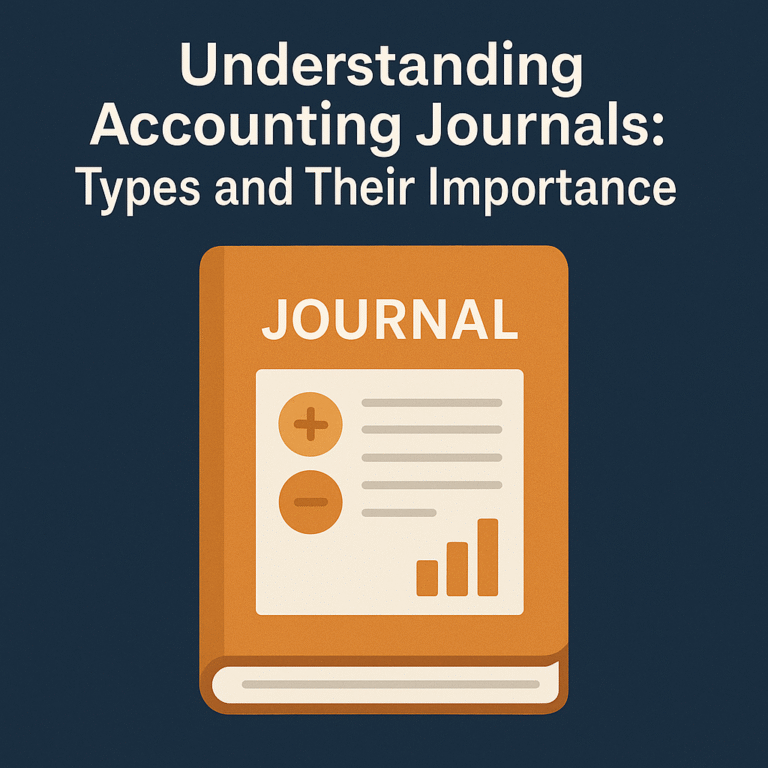Why Are Accounting Journals Essential For ACCA Aspirants?
If you are studying ACCA in Malaysia, you might be a bit familiar with the concept and importance of accounting journals for this qualification. ACCA accounting journals are quite an essential and foundational step for any accounting process aspirants of ACCA, who are required to be proficient in understanding and using these journals. The importance of accounting journals in ACCA is evident by how extensively and in-depth this topic is covered in the early modules.
Accounting journals are the basic tools used to record business transactions systematically; these journals are used as a fundamental step of any accounting process. A firm’s financial statements and reports are created with the help of these journals; the statements are important to track a firm’s financial performance. Additionally, these accounting journals allow financial statements and reports to be accurate and transparent, which is crucial for accountants academically as well as professionally. To get more insights about accounting journals, their importance, and their types, read the blog ahead.
What is an Accounting Journal?
An accounting journal is a fundamental step for any accounting process, it is a comprehensive account that records all the financial business transactions to keep track of a firm’s finances. It is commonly known as ‘the book of original entry because any financial transactions are first recorded in these journals and afterward used in other accounting processes or financial activities.
Types of Accounting Journals:
Commonly, there are seven types of accounting journals; each one of them is briefly explained:
- General journal: to record financial transactions that don’t fit in specialized journals.
- Sales Journal: This journal records all the credit sales only; essential to track accounts receivable and revenue.
- Purchases Journal: records all the purchases on credit, to track accounts payable and expenses.
- Cash Payments Journal: used to record all the cash outflows; focuses on covering expenses such as rent, utility payments, etc.
- Cash Receipt Journal: records all the incoming cash flow, such as customer payments, loan receipts, etc.
- Sales Returns and Allowance: records all the goods returned by the customer and discounts after sales; essential for customer satisfaction.
- Purchase Returns and Allowances: to keep track of all the items returned to the supplier or discounts received.
Covered in Modules of ACCA in Malaysia:
Accounting journals carry great importance in the ACCA qualification as they work as a fundamental accounting process taught to aspirants so that they can use them in complex financial concepts/ processes. The qualification emphasizes understanding and utilizing Accounting journals through many ACCA modules, some of which are listed below:
1. Recording Financial Transactions (FA1):
This module is from the foundational level in Accountancy (FIA), and it mainly focuses on making aspirants understand the use of journals to record the financial transactions of a business. With the help of this module, students get a good understanding of these journals, their types, and the ability to distinguish between different kinds of journals, such as sales journals, purchase journals, etc.
2. Financial Accounting (FA):
Financial accounting is a module from the Applied Knowledge level of ACCA in Malaysia; it provides insights about the importance and use of journals in creating and maintaining financial statements. It covers topics like depreciation, adjustments for accruals, prepayments, error correction, etc.
3. Financial Reporting (FR):
Financial reporting is an ACCA module from the Applied Skills level; this module is a bit more complex than previously mentioned modules as it provides a deeper understanding and use of journals for complex transactions. These complex transactions include provisions, lease accounting, financial instruments, etc.
4. Audit and Assurance (AA):
Audit and Assurance (AA) is a module from the Applied Skills level of ACCA in Malaysia; this module also emphasizes understanding journal entries so that auditors can identify fraudulent activities and errors. It trains aspirants on how skilled auditors should use journals to verify or trace financial transactions during an audit.
Importance of Accounting Journals For ACCA Aspirants and Professionals:
An essential and fundamental skill that enables professionals to record and interpret financial data accurately.
- Many ACCA modules include journal entries and proficiency in this area can help you achieve academic success.
- These journals have key importance in professional applications as well; they help in preparing financial statements according to IFRS.
- Helps in maintaining ethics and integrity by ensuring accuracy and transparency in financial reports.
Real-World Application For ACCA Professionals:
Accounting Journals are an important part of finance professionals, not only in terms of academic use but professionally as well. Effective application of these journals is important to create, interpret, maintain, and assess financial reports. Accountants, Auditors, Tax advisors, as well as Finance Managers and Controllers, are required to have a good understanding and effective application skills in creating and using accounting journals.
Conclusion:
Therefore, as an aspirant or professional of ACCA in Malaysia, a good understanding and effective application of accounting journals is crucial, both academically and professionally. The ACCA qualification emphasizes training aspirants with this practical skill, which is foundational to accelerating an individual’s academic and professional journey in the financial world. Many accounting professionals, from entry-level roles to senior-level roles, are expected to be proficient in maintaining accounting journals; this showcases the importance of these journals in the finance sector.
Frequently Asked Questions (FAQs):
Q1: What is the major difference between a general journal and a special journal?
Ans: A general journal records entries that do not fit in specialized journals separately, whereas a special journal records transactions of similar types used repetitively.
Q2: What does a journal entry include?
Ans: Typically, a journal entry includes accounts involved (Debit or Credit), the date of the transaction, the amount involved, and narration or description.





